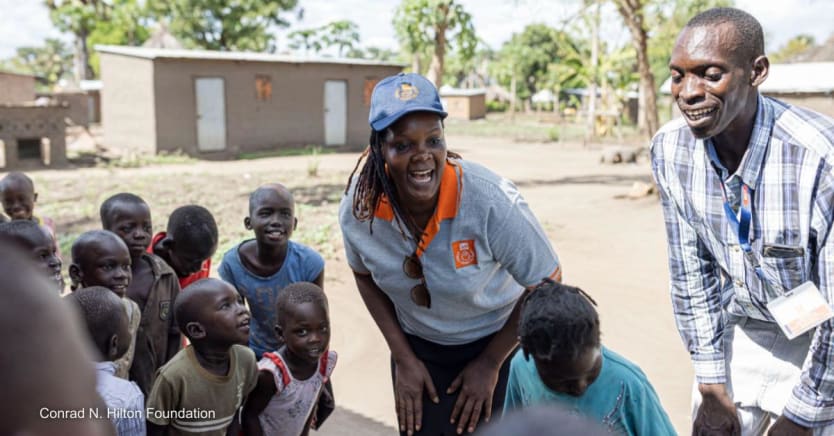
It’s a simple law of nature that as the times change, so must we. In philanthropy, that has meant embracing flexibility, efficiency, and a commitment to diversity and inclusion — even when doing so demands more of us.
At the Council on Foundations, we see global funders evolving by committing to give more of their global grant dollars directly to the communities they want to help. But the need to move from commitment to action is clear in the data: Only 13% of the grants given by U.S. foundations for global causes were directed to local entities between 2016 and 2019, according to our 2023 report “Advancing Locally Led Development: An Overview of U.S. Foundations’ Direct Global Giving.” That represents an increase of only one percentage point from 2011 to 2015.
Yes, there’s work to do. But many funders are supporting locally led development with clear action, and in ways as diverse as the communities they serve.
Organizations leading by example
At the Segal Family Foundation, whose funding is focused on sub-Saharan Africa, that commitment is evident in its staffing model: All program officers are African, and they’re based in the regions where they fund. The foundation also helps build skills and relationships for local leaders through its African Visionary Fellowship, which started in 2017.
Others are working through partnerships. For example, Humanity United has partnered with the U.S. Agency for International Development on its Power by the People initiative to provide flexible, rapid response resources to support social movement organizations. The project supports needs identified by the local, grassroots, and social movement organizations working to bring greater dignity, agency, and prosperity to their communities. It also prioritizes peer-to-peer learning and relationship-building between donors and civil society organizations, grassroots organizers, historically excluded communities, and scholars.
The Conrad N. Hilton Foundation and the David and Lucile Packard Foundation, whose CEOs co-chair the council’s leadership circle on locally led development, are showing up by setting targets, tracking progress, and holding themselves, and each other, accountable. Both have committed to allocate 25% of their global giving directly to local organizations, and the Hilton Foundation has also partnered with USAID to shore up the evidence showing just how much more effective this practice is.
This was the kind of action we were hoping for when 15 foundations joined 18 bilateral donors, including USAID, in endorsing a donor statement on committing to locally led development at the United Nations General Assembly last September. These funders, and many others, are extending trust to local partners — not just because it’s the equitable thing to do, but also because it enables ownership, buy-in, independence, and sustainability.
The way forward
To be sure, there are still many questions and challenges in front of us. What, precisely, qualifies as “local,” given the valuable role intermediaries often play? How can we best collect and analyze the data to track progress? And what can we do in places where the governments make working in partnership with local leaders difficult, or even impossible? The council and many others are working on those very issues, and we know there are no simple answers. But that shouldn’t distract us from taking steps to do better with the knowledge with have.
In a sector with the unique ability to take risks — and, frankly, the fewest restrictions among the many players in local development — we have not just the opportunity, but the responsibility, to shift more of our funding to local partners. The bright spots are a good start. Now is the time to make them the norm instead of the exception.
See the council's resources on locally led development for more information.
Dig into Roots for Change, a series examining the push towards locally led development.
This piece is sponsored by Council on Foundations as part of our Roots for Change series. Click here to learn more.









